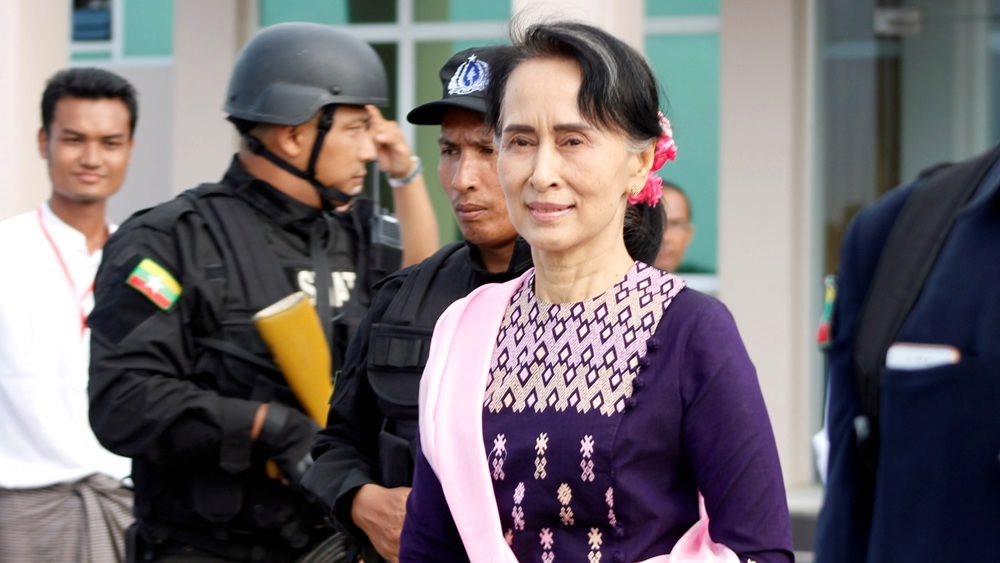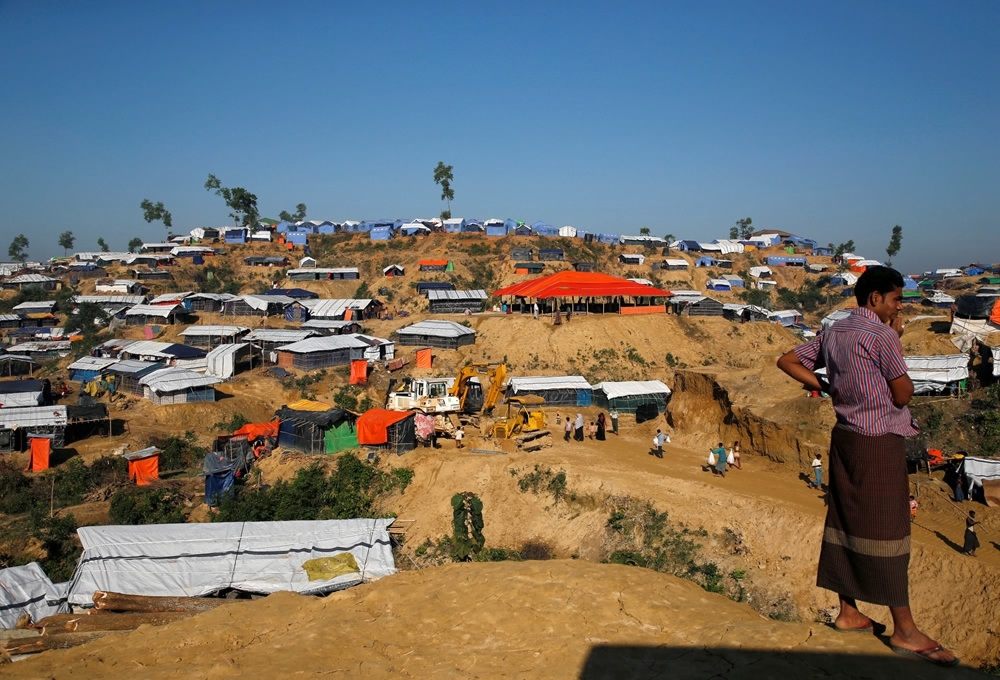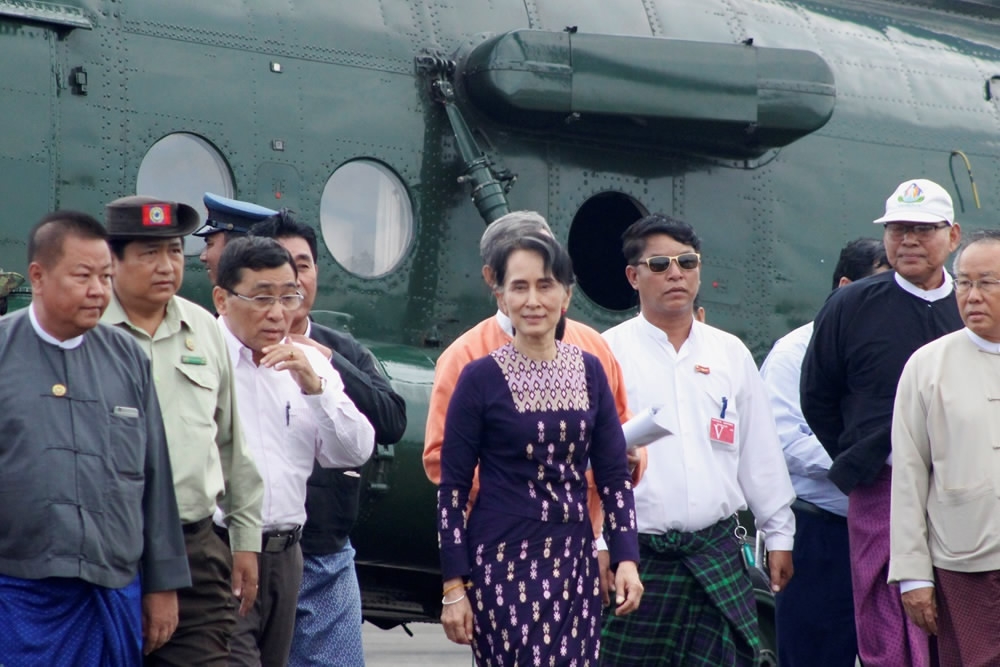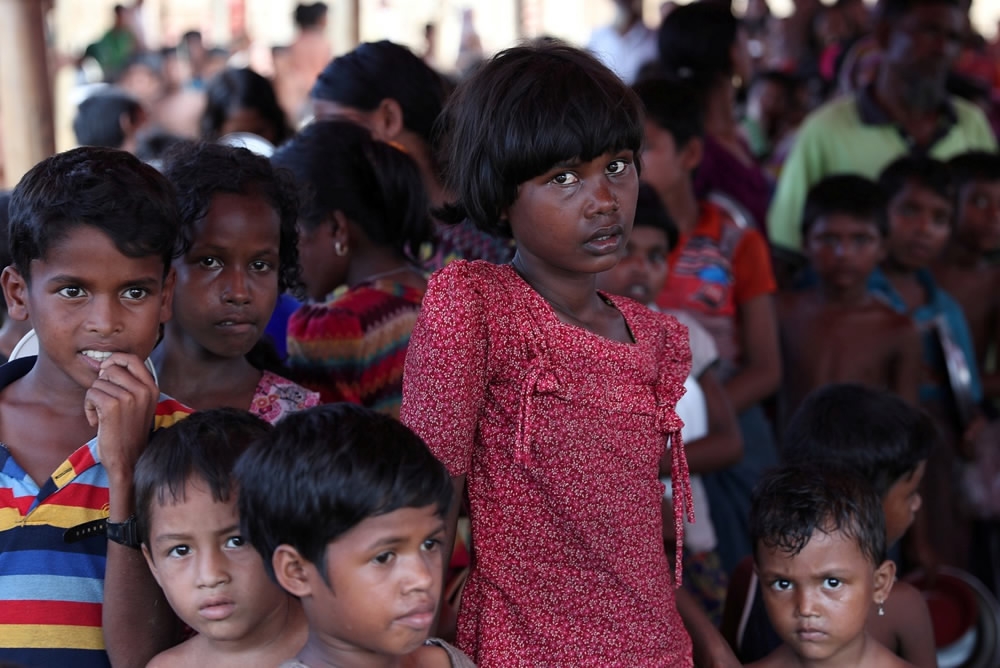
Politics
16:32, 08-Nov-2017
Myanmar: UN move could harm talks with Bangladesh over Rohingya crisis
CGTN

Myanmar said on Wednesday that a UN Security Council statement on the Rohingya refugee crisis could "seriously harm" its talks with Bangladesh over repatriating more than 600,000 people who have fled there.
The Security Council had urged Myanmar, in a statement on Monday, to "ensure no further excessive use of military force" and had expressed "grave concern over reports of human rights violations and abuses in Rakhine State."
Responding, Myanmar's leader Aung San Suu Kyi, whose less than two-year-old civilian administration shares power with the military, said the issues facing Myanmar and Bangladesh could only be resolved bilaterally, a point she says was ignored in the Security Council statement.

Temporary shelters cover a hill at Balukhali refugee camp near Cox's Bazar, Bangladesh, November 8, 2017. /Reuters Photo
Temporary shelters cover a hill at Balukhali refugee camp near Cox's Bazar, Bangladesh, November 8, 2017. /Reuters Photo
"Furthermore, the (Security Council) Presidential Statement could potentially and seriously harm the bilateral negotiations between the two countries which have been proceeding smoothly and expeditiously," Suu Kyi's office said in a statement.
Negotiations with Bangladesh were ongoing, it said, and the Bangladesh Foreign Minister Abul Hassan Mahmood Ali had been invited to Myanmar from November 16-17. Bangladeshi officials said, however, that the minister's visit was likely to take place at a later date.
A sour note was struck over the talks last week, as Bangladesh officials voiced outrage over Suu Kyi's spokesman casting suspicion that Bangladesh might drag its feet over agreeing to the repatriation process in order to first secure hundreds of millions of dollars in international aid money.

Myanmar's leader Aung San Suu Kyi arrives at Sittwe airport after visiting Maungdaw in the state of Rakhine, November 2, 2017. /Reuters Photo
Myanmar's leader Aung San Suu Kyi arrives at Sittwe airport after visiting Maungdaw in the state of Rakhine, November 2, 2017. /Reuters Photo
Speaking at a conference for Commonwealth countries' parliamentarians in Dhaka on Sunday, Bangladeshi Prime Minister Sheikh Hasina called for more international pressure on Myanmar.
"I would request all of you to discuss Rohingya issue with utmost priority and exert pressure on the Myanmar government to stop the persecution of its citizens and take them back at the earliest," she said.
US Secretary of State Rex Tillerson is due to visit Myanmar on November 15, with moves afoot in Washington to table a bill calling for sanctions on Myanmar that specifically target the military and related business interests.

Rohingya refugees wait in a queue to collect food at the Palongkhali makeshift refugee camp in Cox's Bazar, Bangladesh, November 7, 2017. /Reuters Photo
Rohingya refugees wait in a queue to collect food at the Palongkhali makeshift refugee camp in Cox's Bazar, Bangladesh, November 7, 2017. /Reuters Photo
The United Nations has denounced the violence during the past 10 weeks as a classic example of "ethnic cleansing" to drive the Rohingya Muslims out of Buddhist majority Myanmar.
Rejecting that accusation, the military says its counter-insurgency clearance operation was provoked by Rohingya militants' synchronized attacks on 30 security posts in the northern part of Rakhine State on August 25.
Source(s): Reuters

SITEMAP
Copyright © 2018 CGTN. Beijing ICP prepared NO.16065310-3
Copyright © 2018 CGTN. Beijing ICP prepared NO.16065310-3